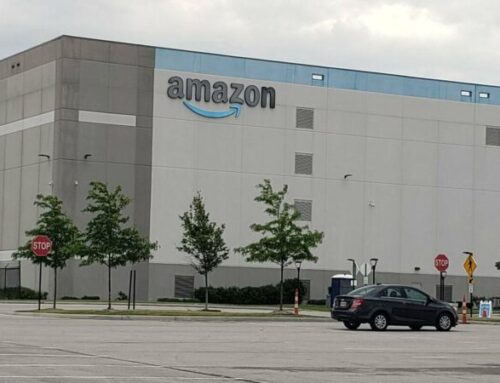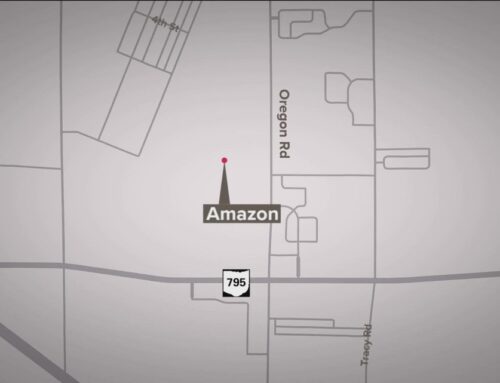Investing in Ukraine: A High-Potential Market with Some (Literal)
January 6, 2025
“Is Ukraine a good place to invest?”
It’s a question that only a few family wealth managers and institutional investors are asking—but maybe more should. Known as the “Breadbasket of Europe,” the Ukrainian agricultural sector is booming, even amid the challenges that will come with rebuilding after the war. With rich soil, a motivated workforce, and government support, you might find that this high-potential market is worth exploring.
“Think of Ukraine as a hidden gem,” says Victor Boyko, a Ukrainian businessman and 20-year veteran of investing in Ukrainian agriculture. “Ukraine has the resources, the talent, and now the urgency to grow like never before.”
He goes on to point out that other countries have seen the advantages of investing in Ukrainian farmland. As an example, he points to government land purchase records that show, “China is massively active in buying land here. It’s a priority for them, and as of 2020, they have already bought 8.6 million acres. Saudi Arabia now owns 400,000 acres and actively invests in successful agro holdings in Ukraine. And that’s only two examples.”
He knows of several reasons why other countries are doing this. The first is that land values are soaring. “Before the war, land was a steal at $600 per acre,” he says. “Now it’s $1200 and climbing. We’re expecting $10,000 in the next decade.”
Next, as he sees it, “The Ukrainian government is all in. Starting in 2025, Ukraine’s budget will pump funds into agricultural projects, and this is on top of existing laws that reimburse up to 50% of ag investments.”
Explaining this, he says, “If a grain elevator has been fully commissioned and the investor has properly submitted an investment report to the Ministry of Agrarian Policy, the enterprise can qualify for a 50% CAPEX reimbursement. In some years prior to the war, the allocated funds were not fully utilized due to low investor activity. This practice also exists in the EU, among other regions.”
Further, “Foreign investors aren’t just welcomed, they’re in high demand. My country knows that these investors bring innovative technologies and sustainable farming practices, so they are not just welcome—they’re in high demand. The greatest interest today is specifically focused on acquiring advanced technologies for the processing of agricultural products.”
Possibly, the easiest and most transparent way of buying prime agricultural land is through government auctions. The government owns 12 million hectares of arable land, and sales of this land happen transparently through public auctions.
The sale of land previously acquired as private property (secondary market) is another possibility, but interestingly, you can’t buy it except at a public auction. “The government does it this way to make sure that the sales are public so the taxes will get paid,” he explains.
There is a third way of acquiring agricultural land and assets, and it’s not through auctions. If the ag land is accompanied by, for instance, a processing plant or grain storage facilities or other ag-related structures on the land, the parties can make their own deals.
A Rare and Lucrative Arbitrage Opportunity
In Ukraine today, 450,000 hectares are contaminated by landmines. The Russian invaders sought to destroy Ukraine’s economy, and part of the effort included systematically dropping millions of landmines on Ukraine’s most productive agricultural land.
“You can get this land with a significant discount, even after taking into account the demining costs,” says Boyko. “We can help with the demining, and the government compensates for the costs, making this a win-win investment for both the investor and Ukraine.”
Paperwork and Compliance
For Boyko the real magic happens when professionals handle all the details involved in buying and managing the land. “We take care of compliance, staffing, and adding value to agricultural products so investors can focus on the big picture,” he says.
For a thoroughly committed investor, dealing with environmental issues and other permissions and paperwork can be done, and people do it. However, Boyko’s company has, as part of its business plan, turned the experience into “a turnkey operation for investors.”
An Ethics Angle
You might wonder if buying Ukraine’s prime agricultural land is taking unfair advantage of a country torn and weakened by war. Boyko has an answer. “Foreign capital is a lifeline for Ukraine’s recovery. It creates jobs, improves infrastructure, and offers access to education and modern techniques and technologies.”
He goes further. “We’re seeing younger Ukrainians, mostly aged 28 to 35, thriving in these new jobs. They’re earning competitive salaries and learning cutting-edge tech. For our upcoming generation, it’s a game-changer.”
Boyko didn’t explicitly state this, but it’s a sentiment shared by many in Ukraine: the country urgently needs to attract back the Ukrainians who left due to the war. To achieve this, Ukraine must offer compelling reasons for return, such as good jobs, cutting-edge technology, and a Western-style approach to governance that minimizes corruption.
Conclusion: An Opportunity that Benefits Everyone
Investing in Ukrainian farmland could be a chance to diversify your portfolio while fueling a nation’s recovery. With land still available, government incentives, and an eager workforce that’s “ready to roll,” for Boyko, the question isn’t if you should invest—it’s when.
The answer he’d give you is, “now.”
Mitzi Perdue has been to Ukraine four times since the full-scale invasion. She’s a Past President of the 40,000-member American Agri-Women and personally invests in agricultural land.
Search
RECENT PRESS RELEASES
Related Post



